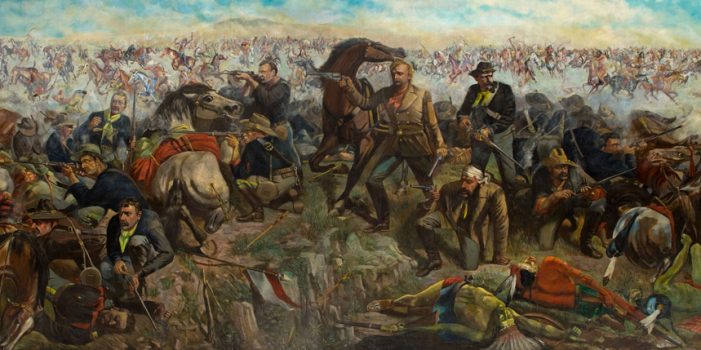On June 25th, 1876, Native American forces led by Chiefs Crazy Horse and Sitting Bull defeated the U.S. Army troops of Lieutenant Colonel George Armstrong Custer in a bloody battle near southern Montana’s Little Bighorn River. The Battle of Little Bighorn–also called Custer’s Last Stand –marked the most decisive Native American victory and the worst U.S. Army defeat in the long Plains Indian War. While complicated, the generally accepted reason for the battle is that the discovery of gold in South Dakota’s Black Hills in 1875 led to the U.S. government disregarding previous treaty agreements. The gruesome fate of Custer and his men outraged many white Americans and confirmed their image of the Indians as wild and bloodthirsty. Meanwhile, the U.S. government increased its efforts to subdue the tribes. Within five years, almost all of the Sioux and Cheyenne would be confined to reservations.
- Ad Survival RealtyFind your secure and sustainable home. The leading marketplace for rural, remote, and off-grid properties worldwide. Affordable ads. No commissions are charged!
- Ad Click Here --> Civil Defense ManualNOW BACK IN STOCK How to protect, you, your family, friends and neighborhood in coming times of civil unrest… and much more!











We caught em’ nappin’ boys! Big village, come quick, bring packs. ps: bring packs.
Do not forget the failure of Custer’s officers to perform as ordered. Custer expected reinforcements and a pincer movement to use his troops to full advantage. His second in command disobeyed and the massacre was the result.
Don’t forget that Custers’ men were armed with single shot [Trapdoor Springfield] carbines and the Sioux were armed with repeating, magazine fed, Winchesters. Or that Custer was also out numbered about 8 or 9 to one. Or that about a quarter of Custers’ men were non-English speaking new immigrants. Custers’ so called pincer movement lacked even the strength to keep an offensive posture, faced with too many hostiles. Custer got himself into one scrape after another during the War Between the States, and got out of them, too. At Little Big Horn, he got into one he could not get out of, and died. John Mosby was a better leader of cavalry.
Maybe, but because of the lack of integrity by his officer we will never know. Some historians agree with you on Custer and others think he was a great Army officer. It appears that Custer was not liked by some and the living get to (re)write history. Was Custer right or wrong in what he did? We cannot know because of the failure of his officer(s) to follow commands.